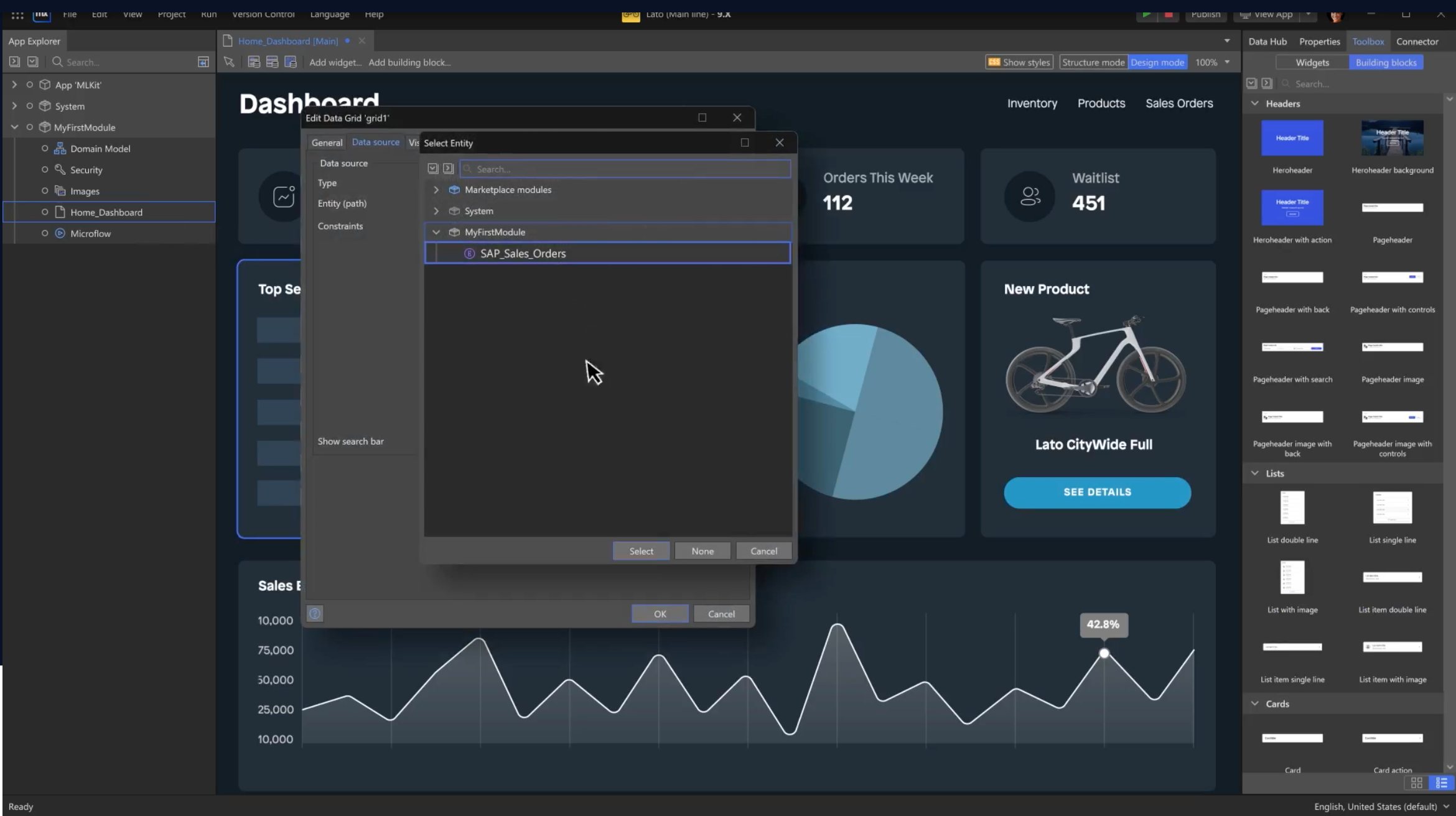
April 2023
Low-code platforms for developers
Low-code platforms have gained a lot of popularity in recent years as they offer developers the opportunity to build applications faster and more efficiently.
A current study by the platform manufacturer Mendix shows that by 2024, most companies expect to use low-code more than traditional, manual software development.
According to Mendix, this assessment is confirmed by Gartner analyses, which assume that by 2025 around 70% of business applications will be developed with low-code or no-code technologies. In 2020 it was less than 25%.
In this blog, I present the advantages and disadvantages of low-code platforms and explain why software developers are not made redundant by low-code generators, but vice versa.
Benefits of low code
Faster development: The greatest strength of low-code platforms is the speed with which basic applications can be built. Since most tasks are performed automatically, developers can typically create applications much faster than with traditional development.
Lower costs: Because less programming work is required, the cost of basic application development on low-code platforms is typically lower. The creation of applications is not only faster, but also cheaper and more efficient.
Better collaboration: Low-code platforms allow teams to collaborate and edit simple applications in real time. Because all members of the team have access to the same platform, it's easy to track changes and test the applications.
Lower risk: Low-code platforms offer built-in security features that reduce the risk of security breaches. You can also ensure that applications are optimized for different devices and platforms, which significantly reduces the risk of errors in the basic processes.
Disadvantages of low code
Limited flexibility: While low-code platforms can be fast and cost-effective, they also have their limitations. They are often limited to the features built into each platform. If you need an application with specific features that are not included in the platform, you may need to switch to another platform.
Limited Customizability: Another disadvantage of low-code platforms is that they are not as customizable as other development methods and environments. If you need to make special adjustments to optimize your application, you may need to use a different development platform, integrate additional hand-built software, or forgo certain features altogether.
Lack of control: When building an application on a low-code platform, you may not have full control over the application's functionality and architecture, but at least you have limited control. If you have specific needs or need specific functionality, you may need to use a different platform or manual development.
Complexity: Even low-code platforms can be complex and require extensive learning to use effectively.
Competition or advancement?
Although low-code platforms offer many advantages, they cannot completely replace experienced software developers.
The reverse view is correct: low-code systems complement the tool palette of software developers and make them more productive.
While low-code platforms have many built-in features, they cannot meet all the needs that an application needs. They cover the basic functions of an application and thus save a lot of time with repetitive and non-innovative tasks.
Adaptations, extensions and above all integrations with other systems are almost always necessary to fulfill special functions or requirements that are not integrated in the platform.
In addition, software developers can optimize the architecture and design of applications to ensure better performance and security. You can also ensure that applications work smoothly on different devices and platforms. In any case, quality control is an important element in the development process of an application.
Experienced software developers can therefore develop secure applications faster with low-code generators and concentrate more on the individual and value-adding work.
Conclusion
Low-code platforms complement the work of developers, not the other way around. Not least because of this, it is good advice to deal with low-code and no-code platforms.

Author
Bernd Guenter is Head of Sales & Marketing at it-economics, with international experience in consulting, business development, sales and management of multinational customers.
He is an expert with proven track record in modern software development, delivery leadership, digital and cultural transformation, agile project development and IT.
For many years, the experienced manager has ensured that companies in digital change are successful with the right multifunctional teams, technologies and innovations and that they convert their ideas into solutions.
Contact Bernd Günter LinkedIn
You must view the contents of reCAPTCHA load to submit the form. Please note that data is exchanged with third-party providers.
More information


